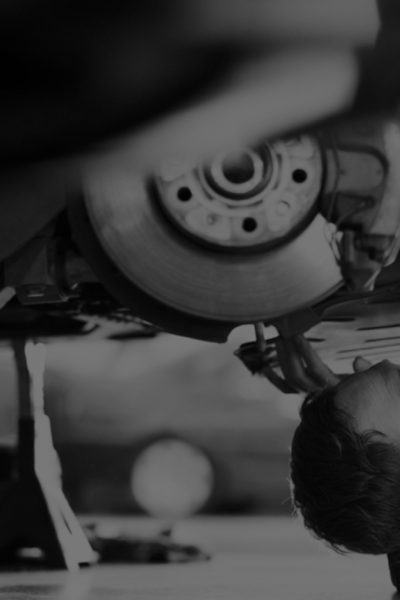
Brakes
- Share via Twitter
- Share via Facebook
- Share via Pinterest
- Share via LinkedIn
-
Copy to your clipboard
You use the brakes every time you drive so, as you might imagine, it's very important they're in tip-top working order. Brakes are made up of pads that squeeze against the brake discs to slow the car down. Over time they will wear away and will need replacing. It's such a gradual process that you might not notice it. But there are some simple things to look out for.
Brake problems – what to look for
Some tell-tale signs of brake problems
Can you hear a grinding noise when you apply the brakes?
This could mean your brake pads are excessively worn and need replacing, along with any potentially damaged discs.
Squeaking noises when you press the brakes?
It
could be that the brake pad is only partly attached to the disc, or
some brake pads have indicators which squeal to let the driver know the
brake pads are worn and need replacing – handy right! Whichever it is,
if your brakes start squeaking you should get them fixed.
Is your car pulling to one side when braking?
This
usually means a sticking or seized mechanical or hydraulic component.
Pop in centre for an inspection where our mechanics can tell you why
your car is doing this.
Does the pedal feel spongy?
There could be air in the hydraulic system due to a brake fluid leak
When you press the pedal, does it pulsate?
If
your brake feels like it’s pulsating continuously, get it checked out
at one of our centres. This could be a distorted brake disc or drum.
Unfortunately, this will need to be replaced.
Brake light glowing on your dashboard?
It’s
surprising how many people ignore this warning light. But if you see
it, it’s time to take action. This usually means your brake fluid is
low, or a potential leak.
Limp brake pedal?
If
your brake pedal goes all the way to the floor with little force then
you should get in checked straight away. This is usually due to lack of
effective brake fluid but can be down to other faults as well.
If
you have any doubts, problems, concerns or worries, please don’t
hesitate to get in touch with one of our HiQ car care experts, we’ll
even give you a free, no obligation brake assessment.
BRAKE FLUID
Brake fluid is crucial in ensuring your brake system works efficiently. It is recommended that you change your brake fluid every 24 months or 24,000 miles.
Over time brake fluid absorbs moisture lowering the temperature at which it boils severely impacting on your cars braking performance. Many modern cars now have warning systems for when brake fluid levels are low.
If you are exerting more force under braking or if you find that your brakes feel less responsive when applying pressure then it is recommended that you have a trained technician inspect your brakes for wear and tear.
Braking fluid is an integral part of the braking system transferring energy from the brake pedal to the wheel hub, creating friction and slowing the vehicle.
It is generally thought that brake pads should last between 30,000 and 50,000 miles however the lifetime for brake pads is subject to driving style and can vary between vehicles.
If your brakes feel less responsive when applying pressure or if you are exerting more force when braking then it is recommended that you have a trained technician inspect your brakes for wear and tear.
Low brake fluid levels can have very serious consequences if not addressed early resulting in poor performance and in some cases total brake failure. If you notice the need to exert more force when braking this could be a tell-tale sign that you’re brake fluid levels are low.
It is generally thought that brake pads should last between 30,000 and 50,000 miles however the lifetime for brake pads is subject to driving style and can vary between vehicles. Brake pads are checked during a service and our technicians will be able to advise of their condition.
Brakes are made up of pads that squeeze against the brake discs creating friction and slowing the car down.
If you find that your brakes feel less responsive when applying pressure or if you are exerting more force under braking then it is recommended that you have a trained technician inspect your brakes for wear and tear.
The costs to replace brake pads can vary depending on the brand and fitment type however our technicians are on hand to provide an accurate quote upfront and often all you need to provide is your vehicle registration number.